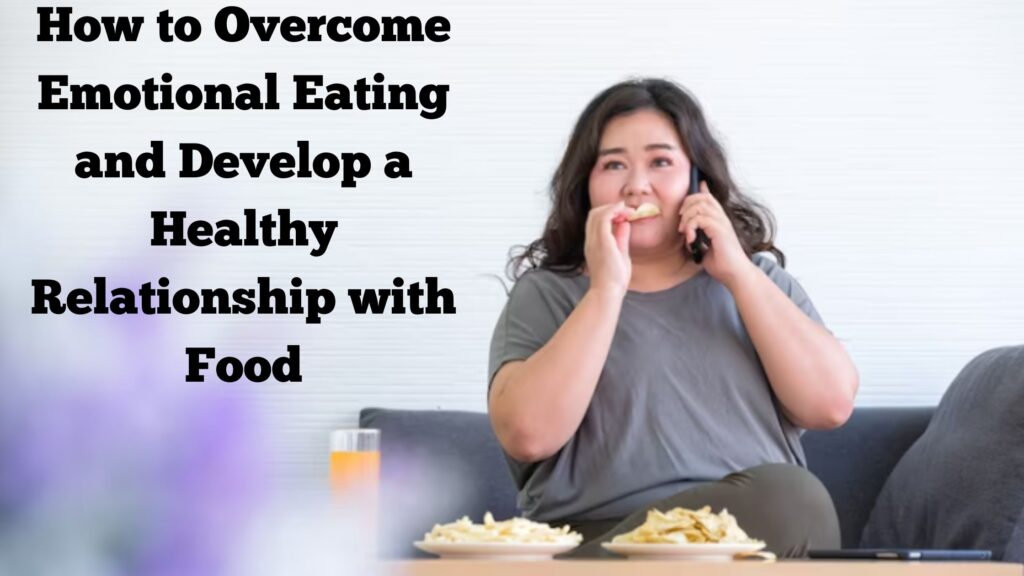Emotional eating is a common phenomenon that affects many people, often leading to unhealthy eating habits and weight gain. Emotional eating refers to using food as a way to cope with negative emotions or to seek comfort. It can happen in response to stress, boredom, sadness, or anxiety, among other emotions. Emotional eating can quickly become a habit that is hard to break, leading to long-term negative effects on both physical and mental health. However, with the right strategies and support, it is possible to overcome emotional eating and develop a healthy relationship with food. In this blog post, we will explore various techniques that can help you overcome emotional eating and develop a healthy relationship with food.
Identify Your Triggers:
The first step in overcoming emotional eating is to identify your triggers. What are the situations, emotions, or events that make you turn to food for comfort? Some common triggers include stress, boredom, loneliness, anxiety, and depression. Once you identify your triggers, you can start to develop strategies to manage them.
Practice Mindful Eating:
Mindful eating is the practice of paying attention to the present moment and being fully present when eating. It involves being aware of your thoughts, emotions, and physical sensations while eating. Mindful eating can help you develop a healthy relationship with food by allowing you to connect with your body and listen to its signals of hunger and fullness.
To practice mindful eating, start by setting aside time to eat without distractions, such as your phone, television, or computer. Take small bites, chew slowly, and savor the flavors and textures of your food. Pay attention to the feeling of fullness and stop eating when you feel satisfied, rather than when you are overly full.
Learn Healthy Coping Mechanisms:
Emotional eating often happens because we don’t have healthy coping mechanisms for managing stress or negative emotions. Instead of turning to food, it’s important to learn healthy coping mechanisms that can help you manage your emotions in a positive way. Some healthy coping mechanisms include:
- Exercise: Exercise is a great way to manage stress and anxiety. It releases endorphins, which can help improve mood and reduce stress levels.
- Meditation: Meditation can help reduce stress, anxiety, and depression by promoting relaxation and mindfulness.
- Journaling: Writing down your thoughts and feelings can help you process your emotions and gain perspective.
- Talking to a friend or therapist: Talking to someone you trust can help you process your emotions and gain support.
Plan Your Meals:
Planning your meals can help you make healthier food choices and reduce the likelihood of emotional eating. When you plan your meals, you can ensure that you have healthy options available when you’re feeling hungry or stressed. Try to include a variety of fruits, vegetables, whole grains, and lean proteins in your meals. Avoid skipping meals, as this can lead to overeating later on.
Keep a Food Diary:
Keeping a food diary can help you identify patterns in your eating habits and become more aware of your emotional triggers. Write down what you eat, when you eat it, and how you feel before and after eating. This can help you identify situations or emotions that lead to emotional eating and develop strategies to manage them.

